- 20 minute read
- Content Marketing
- SEO
- Websites
8 Tips for Creating Content That Your Customers – And Google – Want!
Beginner,
Intermediate
Get a behind-the-scenes-look into FareHarbor's 2024 season

Keywords are a major focus in SEO — keyword research helps us to identify what searchers are typing into the search bar, and from there we work to include those keywords on web pages, social media, and other online marketing materials to help boost rankings.
As Google becomes better at understanding exactly what users are looking for, it’s no longer enough to just target the highest-ranking keywords – it’s absolutely crucial to understand search intent.
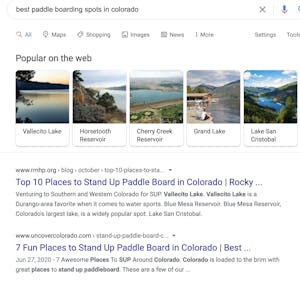 In its most basic form, search intent can be defined as the purpose behind a query. It’s what drives a searcher to type in a query, and it determines what type of content they’re trying to find. For example, when you type in “best paddle boarding spots in Colorado” what do you hope to find? You’re most likely in the research phase of your planning, and you’re hoping to learn about some of the top options in the area. This is your search intent.
In its most basic form, search intent can be defined as the purpose behind a query. It’s what drives a searcher to type in a query, and it determines what type of content they’re trying to find. For example, when you type in “best paddle boarding spots in Colorado” what do you hope to find? You’re most likely in the research phase of your planning, and you’re hoping to learn about some of the top options in the area. This is your search intent.
Google’s algorithm has become increasingly more sophisticated when determining the intent of the searcher and to serve up results that satisfy that intent – even when the search query may not be as clear, Google can generally deduce what someone is looking for.
This guide will explain why search intent is so important, the types of intent, and how to optimize your pages to satisfy the intent.
There are four major types of search intent that determine the type of content a user is looking for when they type in their query.
 Informational
Informational This intent means the searcher is looking for the answer to a question, such as “how many cups are in a quart,” or they’re looking for more information on a topic, such as “how does bitcoin work.” These queries call for a result that quickly answers their questions via a featured snippet and links to a full-length article with more information.
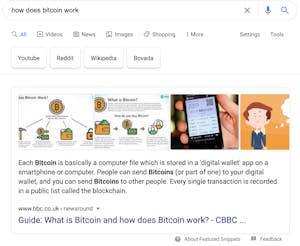
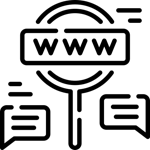 Navigational
NavigationalThis refers to when a searcher is looking to navigate to a specific website. For example, if you type FareHarbor into your search bar rather than typing in the full URL, the first result in the SERP will take you to FareHarbor’s homepage.
 Transactional
TransactionalThis type of search intent means the searcher is looking to purchase something. For example, they might type in “buy iPhone online.” Transactional searches will often include terms such as “order,” “buy,” “discount,” or “purchase.” Local searches can also be transactional. Users looking for a service or product in their vicinity are likely ready to book or purchase it.
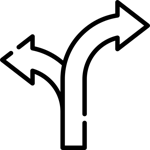 Commercial Investigation
Commercial Investigation This intent means the user is still in the research phase and not ready to buy yet. For example, they might be looking to compare two products, such as “snorkeling tours vs. scuba diving tours,” or they might be searching for a list of top-rated activities, such as “best family activities in Austin.” Searchers typing in these queries will be looking for articles, lists, and other informational content.
Relevance is one of the pillars of ranking on Google. It’s in Google’s best interest to offer searchers the most relevant result so they will continue to trust and use their search engine. Going back to our first example, imagine you’re typing in the query “best paddle boarding spots in Colorado” and you land on a page to book an activity. You’re not ready to book yet, so this page isn’t relevant to you and you immediately leave it. This tells Google that this page is not a good match for the query because it doesn’t satisfy the search intent, so it shouldn’t rank highly for this term. On the flip side, if you land on a list of top 7 places to paddleboard in Colorado, you will likely spend some time on this page, signaling to Google that it’s relevant to that search term and it should be ranked well. This is why optimizing for search intent is so important.
While you can infer the type of search intent from the words used in the query — such as “how to” for informational searches or “order online” for transactional searches — the four categories are still fairly broad and might not help you optimize your page for intent. Keep these tips in mind to help make your content relevant for searchers.
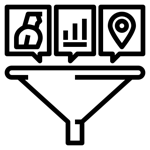 Gather Good Information
Gather Good InformationBefore you start optimizing your page, it’s important to search for the query you’re targeting and explore the top results – whether that be from the SERP or from your competitors. What type of content is Google ranking at the top? Articles, lists, product pages, comparison pages? Beyond just understanding the content type, you should also take note of the style in which the content is written, how it’s organized, the types of media used (photos, videos, infographics), and more. This can help you understand what type of content resonates with readers, what gaps in your content you can fill, as well as the related queries searchers have so you can write the most relevant content and have a higher chance of ranking.
 Don’t Force It
Don’t Force It If the page you’re optimizing doesn’t meet the search intent of the highest-ranking keywords, it’s probably best to either target different keywords or to create a new page that will be more relevant. For example, if you’re targeting “best snorkeling tours in Maui,” it doesn’t make sense to optimize a single activity page for this keyword. That’s not the type of page searchers are looking for when typing this query. Instead, you could write a blog post that meets this search intent, and you can link to your own activities so users can navigate to them when they’re ready to book.
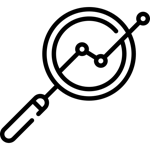 Remain Flexible
Remain FlexibleRemember that search trends change. Even if you’ve done all of the above, search trends tend to fluctuate, and Google’s algorithm is constantly evolving, so it’s important to continue to monitor your content to make sure it’s performing well and still meeting users’ needs. You can perform regular content audits to keep your content relevant and fresh.
The more that search engines, particularly Google, work to comprehend language and discover the reasoning behind searches, the more important it becomes to understand and meet search intent. Now that you know why search intent is so crucial, you can better optimize your pages to give users the information they need, which will improve your chances of ranking well. For more SEO tips, watch our video on local SEO, or read our guide to performing keyword research.